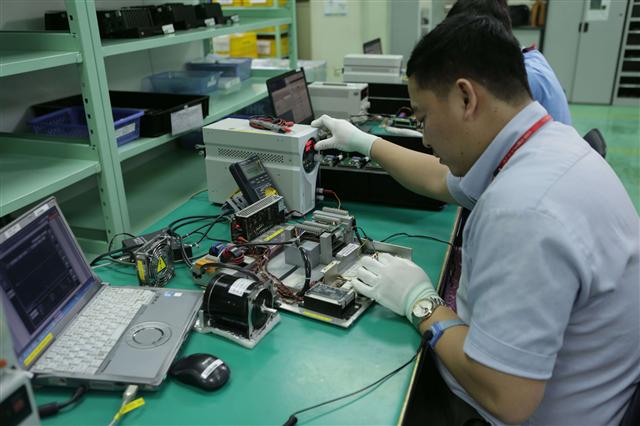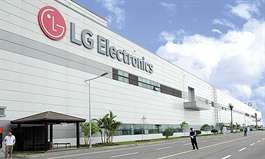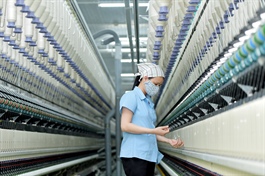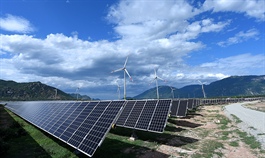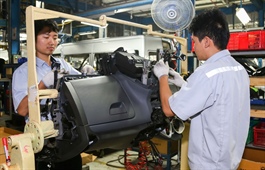Multinational electronics giants boost investment in Vietnam
Multinational electronics giants boost investment in Vietnam
Multinational electronics corporations are increasing investment in their high-technology manufacturing facilities in Ho Chi Minh City and other localities in Vietnam.
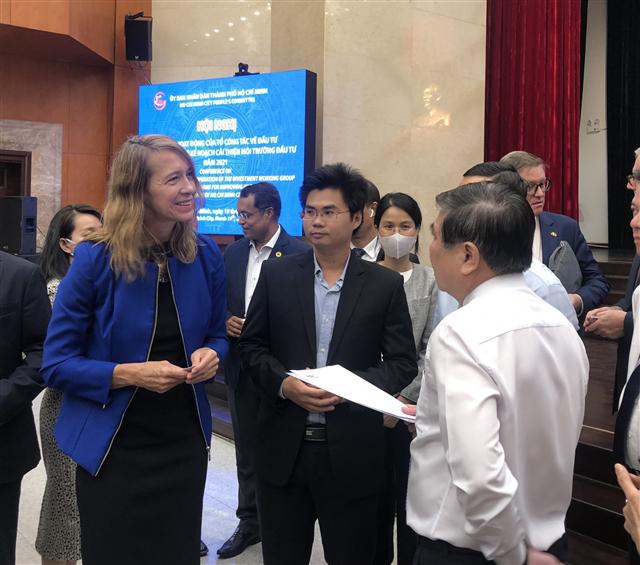
Ho Chi Minh City People’s Committee Chairman Nguyen Thanh Phong (right) talks with foreign investors
|
Vibrant investment
In the first quarter of 2021, despite ongoing Covid-19 complications, both electronics giants Intel and Samsung increased investment in Vietnam, pursuing their long-term goals in this market.
Specifically, Intel Products Vietnam decided to pour an additional US$475 million into its manufacturing facility, raising its total registered investment to more than US$1.5 billion. The additional investment enables Intel to promote the manufacturing of 5G products, Intel Core processors with Intel Hybrid technology, and 10th generation Intel Core processors.
According to Intel Products Vietnam’s Director of Finance Alan Danner, the company so far has manufactured and exported more than two billion microprocessors and semiconductors. By the end of 2020, Intel Products Vietnam’s total export value had exceeded US$50 billion, and the company had generated jobs for nearly 7,000 people, including 2,700 Intel employees.
Meanwhile, Samsung HCMC CE Complex was allowed to shift its classification from a high-tech firm to an export-processing company. Its project in the Saigon Hi-tech Park (SHTP) was first licensed on September 25, 2014, and its investment capital has now reached US$2 billion. Covering more than 93ha, Samsung’s factory in the SHTP was designed to manufacture 19 million products a year. As an export-processing company, Samsung HCMC CE Complex exports most of its products, creating opportunities for support industry businesses involved in its supply chains to expand operations.
|
According to Ho Chi Minh City People’s Committee Vice Chairman Vo Van Hoan, the city has attracted 50 projects with foreign direct investment (FDI) in the electronics industry, with total registered capital of nearly US$5.06 billion. Of these, 17 projects with registered capital of US$20 million or more are operating in industrial, export-processing or high-tech zones. In addition to Intel and Samsung, First Solar, Furukawa Automotive Parts, and Renesas also have investment projects in Ho Chi Minh City.
In the southeastern province of Dong Nai, most new FDI projects and ongoing ones that increased capital in the first quarter of 2021 are in the field of high technology and support industries. Kim Byunggi, General Director of the Hansol Electronics Vietnam Hochiminhcity Company Limited with 100 percent of Korean capital, said its new factory will manufacture 10.8 million products annually, including liquid crystal display (LCD) modules and electronic circuit boards, for supply to Samsung and export to various markets.
The Platel Vina Company Limited, a subsidiary of the Intops Group (Republic of Korea) also has a US$30 million investment project based in Dong Nai Province’s Amata Industrial Park, which manufactures electronic enclosures, electronic components, and plastic electronics with annual capacity of 400 tonnes of products.
Creating a favorable environment
Ho Chi Minh City People’s Committee Chairman Nguyen Thanh Phong affirmed the municipal government’s willingness to create favorable conditions for foreign companies to pursue long-term operations in the city.
The city has established two inter-sector working groups, one dealing with investment-related issues, and the other one tasked to promote external relations and international cooperation. The two working groups are responsible for resolving problems facing investment projects in the city and promoting international cooperation activities. They will implement their tasks with support of the Department of Planning and Investment, the Department of Foreign Affairs, and the Trade and Investment Promotion Center of Ho Chi Minh City.
The city will tighten the coordination among relevant authorities in selecting suitable investment projects in accordance with the Investment Law, while at the same time increasing post-licensing inspection, especially in high-tech sectors.


